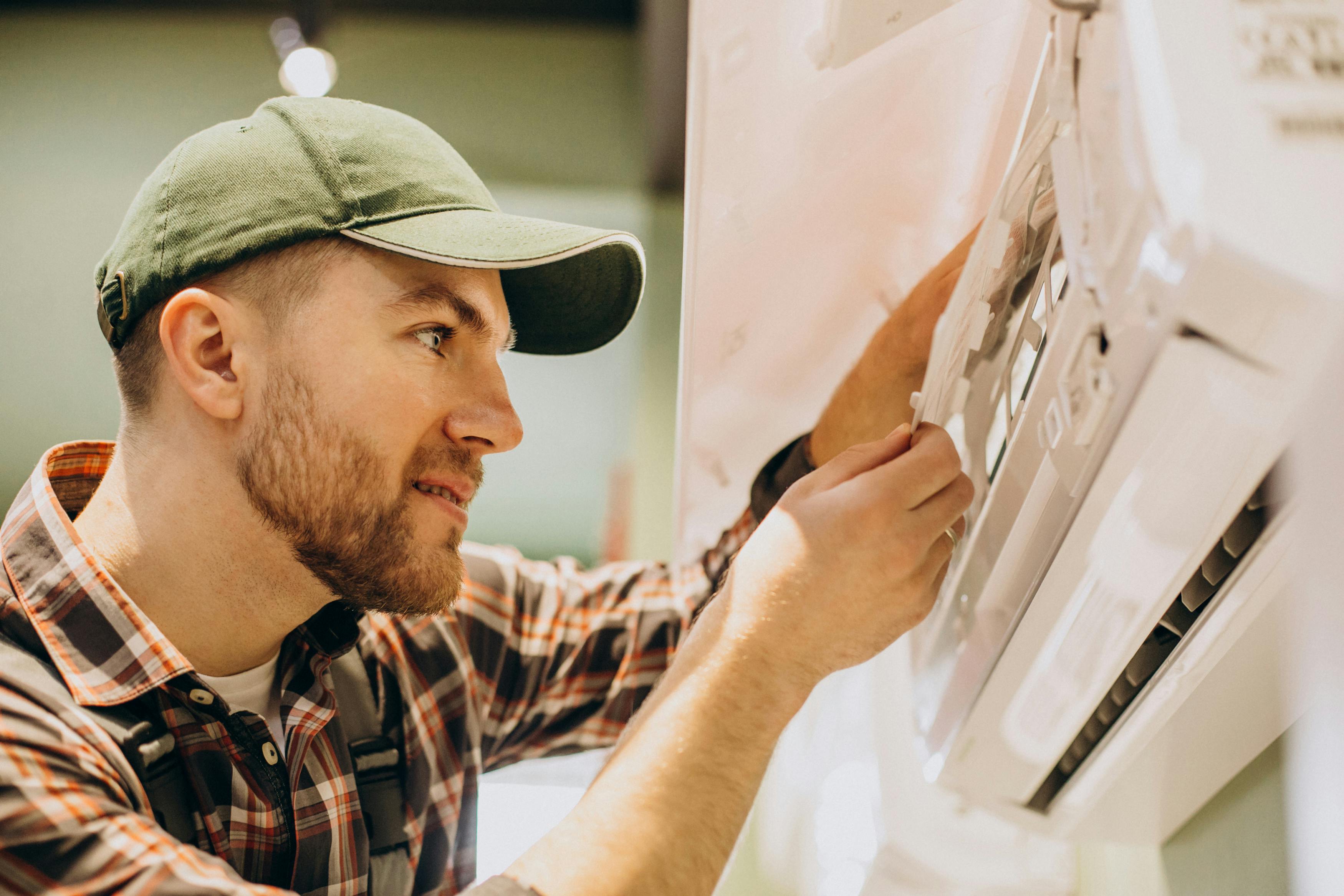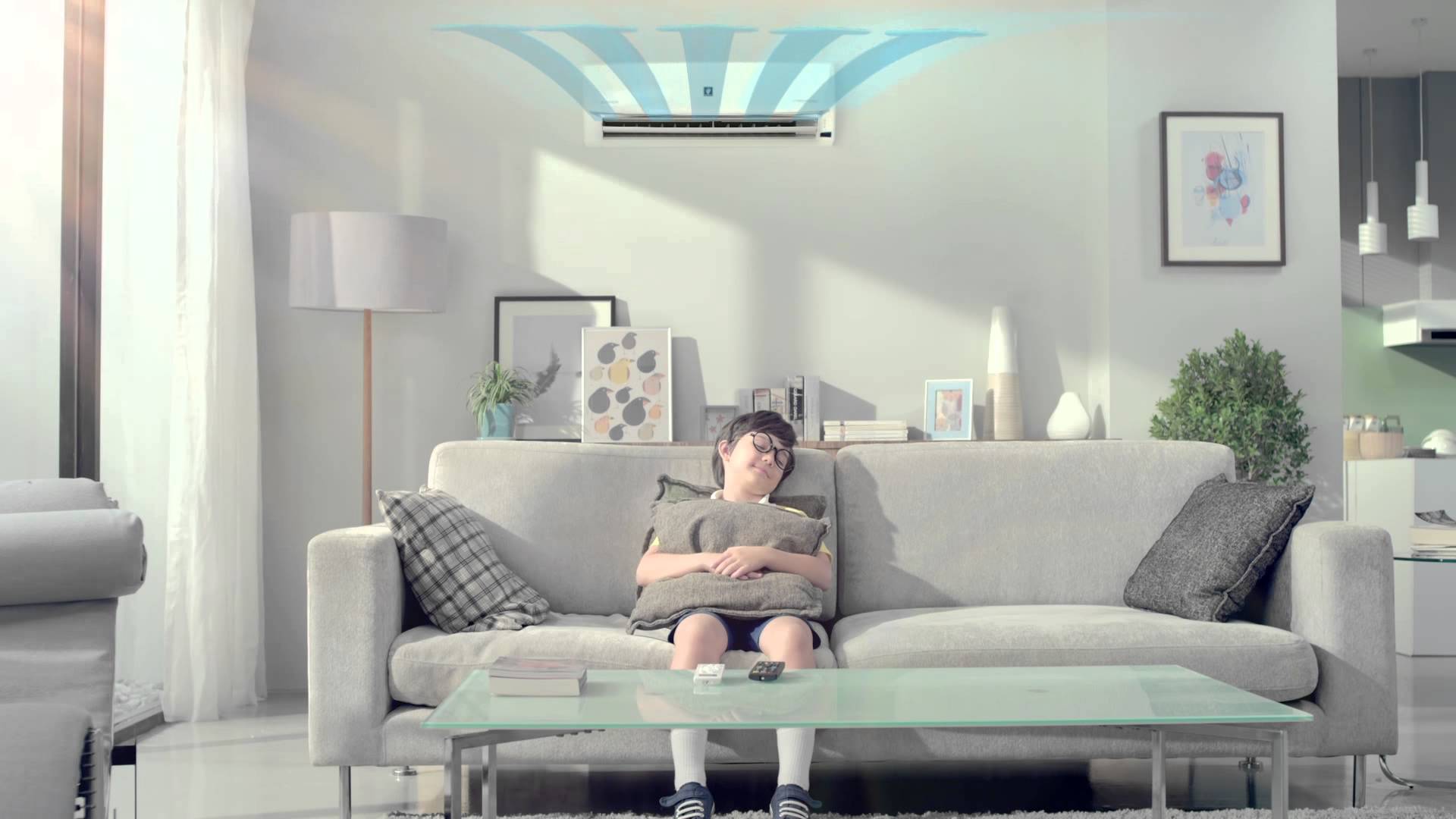
Aircon Refrigerant Gas Leakage
Aircon refrigerant gas leakage is a common issue faced by air conditioning systems in Singapore, as in any other country. The hot and humid climate in Singapore necessitates the regular use of air conditioners, and over time, wear and tear or other factors can lead to refrigerant leaks.
Regular maintenance and servicing of air conditioning systems can help prevent refrigerant leaks and maintain optimal cooling performance. Ensuring proper installation and handling of refrigerants are vital for the efficiency and longevity of air conditioning units while minimizing their impact on the environment.
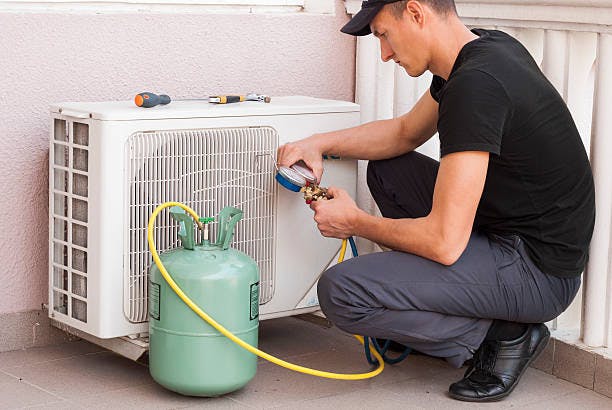
Indications of Aircon gas leakage
Indications of aircon gas leakage can be observed through various signs. It's important to address aircon gas leakage promptly as it can lead to reduced cooling performance, increased energy consumption, and potential damage to your air conditioning system. Here are some common indications of aircon gas leakage:
1. Reduced Cooling Efficiency
A clear indication of aircon gas leakage is when your air conditioner struggles to cool your space as effectively as before. You may notice weaker airflow and a less cooling sensation.
2. Prolonged Cooling Time
If your air conditioner takes longer than usual to reach the desired temperature, it could be a result of aircon gas leakage, which impacts the system's ability to cool efficiently.
3. Continuous Compressor Operation
The compressor may run constantly or cycle more frequently than usual when there's a gas leak, as it tries to compensate for the decreased cooling capacity.
4. Ice Formation
Aircon gas leakage can cause the evaporator coils to get too cold, leading to ice or frost formation on the coils or refrigerant lines.
5. Hissing or Bubbling Noises
When you hear hissing or bubbling noises coming from the indoor or outdoor unit, it can be a sign of a refrigerant leak, leading to aircon gas leakage.
6. Oil Stains or Residue
Sometimes, you may notice oil stains or residue around the air conditioning unit, which can indicate the presence of a refrigerant leak.
7. Unpleasant Odor
In some cases, aircon gas leakage can produce a distinct and unpleasant odor, which is another potential sign of a refrigerant leak.
Causes of Aircon gas leakage
Aircon gas leaks can be caused by various factors, some of which are related to normal wear and tear over time, while others may be due to improper installation or maintenance practices. Here are some common causes of aircon gas leakages:
1. Poor Installation
Incorrect installation of the air conditioning system, including improper brazing or welding of refrigerant lines, can lead to refrigerant leaks. The connections between components must be secure and airtight to prevent leaks.
2. Degraded Seals and Gaskets
Over time, the rubber seals and gaskets in the air conditioning system can deteriorate due to exposure to heat and chemicals in the refrigerant. Damaged seals can result in gas leakage from various connections and joints.
3. Corrosion and Rust
Corrosion and rust can develop on refrigerant lines and components, especially in coastal or high-humidity areas. This corrosion weakens the metal, leading to potential leaks.
4. Vibration and Physical Damage
Vibrations from the operation of the aircon unit or external factors can cause wear and tear on refrigerant lines, leading to leaks. Physical damage from accidental impacts can also cause leaks.
5. Improper Refrigerant Charging
Incorrectly charging the air conditioning system with refrigerant can lead to leaks. Overcharging or undercharging the system can cause pressure imbalances, resulting in leaks at weak points.
6. Manufacturing Defects
In some cases, air conditioning units may have manufacturing defects, such as poorly constructed components or faulty seals, leading to gas leakage.
7. Age and Wear
As air conditioning systems age, their components can weaken and deteriorate, making them more susceptible to refrigerant leaks.
7. Poor Maintenance
Lack of regular maintenance can lead to various issues in the air conditioning system, including refrigerant leaks. Dirty coils, clogged filters, and neglected parts can contribute to leaks.
How to fix aircon gas leakage

Fixing aircon gas leakage should be done by a qualified HVAC technician due to the safety and environmental risks involved. Handling refrigerant gases requires specialized knowledge, equipment, and certifications to ensure proper repairs and prevent further leaks. However, as a general overview, here are the steps involved in fixing aircon gas leakage:
1. Identify the Leak
The first step is to identify the source of the gas leakage. Technicians use various methods, such as electronic leak detectors, ultraviolet dye, or soap bubbles, to locate the leak.
2. Isolate the System
Before starting any repair work, the technician will turn off the air conditioning system and isolate it from the power source to ensure safety.
3. Recover Refrigerant
If there is still refrigerant left in the system, it needs to be recovered safely using specialized equipment. Recovering the refrigerant prevents it from being released into the atmosphere, where it can be harmful.
4. Repair the Leak
The technician will repair the identified leak using appropriate methods. Depending on the location and severity of the leak, they may need to replace faulty components, such as O-rings, gaskets, or tubing, or weld/patch damaged areas.
5. Pressure Test
After fixing the leak, the technician will conduct a pressure test to ensure that the repaired section is now airtight and the system won't leak.
6. Vacuum and Recharge
If the repair is successful, the system will be evacuated and vacuumed to remove any moisture and air. Then, the correct amount of refrigerant will be recharged into the system.
7. Leak Check
Once the refrigerant is recharged, the technician will perform another leak check to ensure that the repaired section is holding the gas without any further leaks.
8. System Check and Testing
After completing the repair and recharge process, the air conditioning system will be tested to ensure that it is functioning correctly and cooling efficiently.
It's crucial to understand that fixing aircon gas leakage requires specialized equipment and training. As such, it should only be done by licensed HVAC technicians who have the necessary knowledge and experience. Attempting to fix a refrigerant leak without proper expertise can lead to further damage, personal injury, and legal issues.
Repair cost to fix Aircon gas leakage
The cost of fixing aircon gas leakage can vary depending on several factors, such as the location, the severity of the leak, the type of refrigerant used, and the service provider's rates.
Because of the complexity and potential hazards associated with refrigerant handling, it is essential to hire a qualified HVAC technician to perform the repairs. The cost will depend on the extent of the repairs needed, the time required, and the price of the refrigerant itself.
In most cases, it is advisable to replace the entire air conditioning system, as it is both expensive and hard to find leakage areas especially if the A/C pipes are behind the wall.
To determine the exact cost of fixing an aircon gas leakage in your specific case, we recommend to open an Aircon repair request with us.
Why is your air con leaking water and how to fix
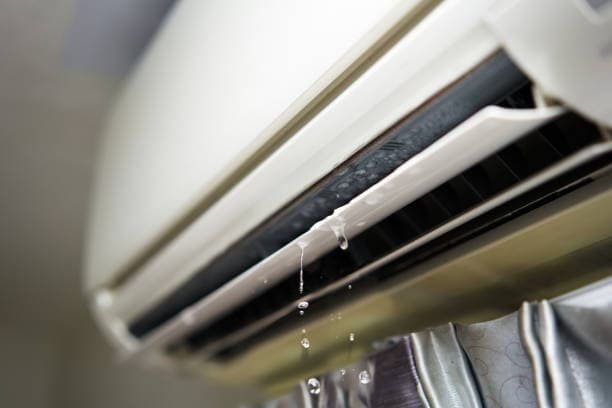
The indoor unit of your air con has a component called the evaporator coils which helps to cool the warm air. As warm air touches the condenser..
Repair Aircon Printed Circuit Board (PCB)
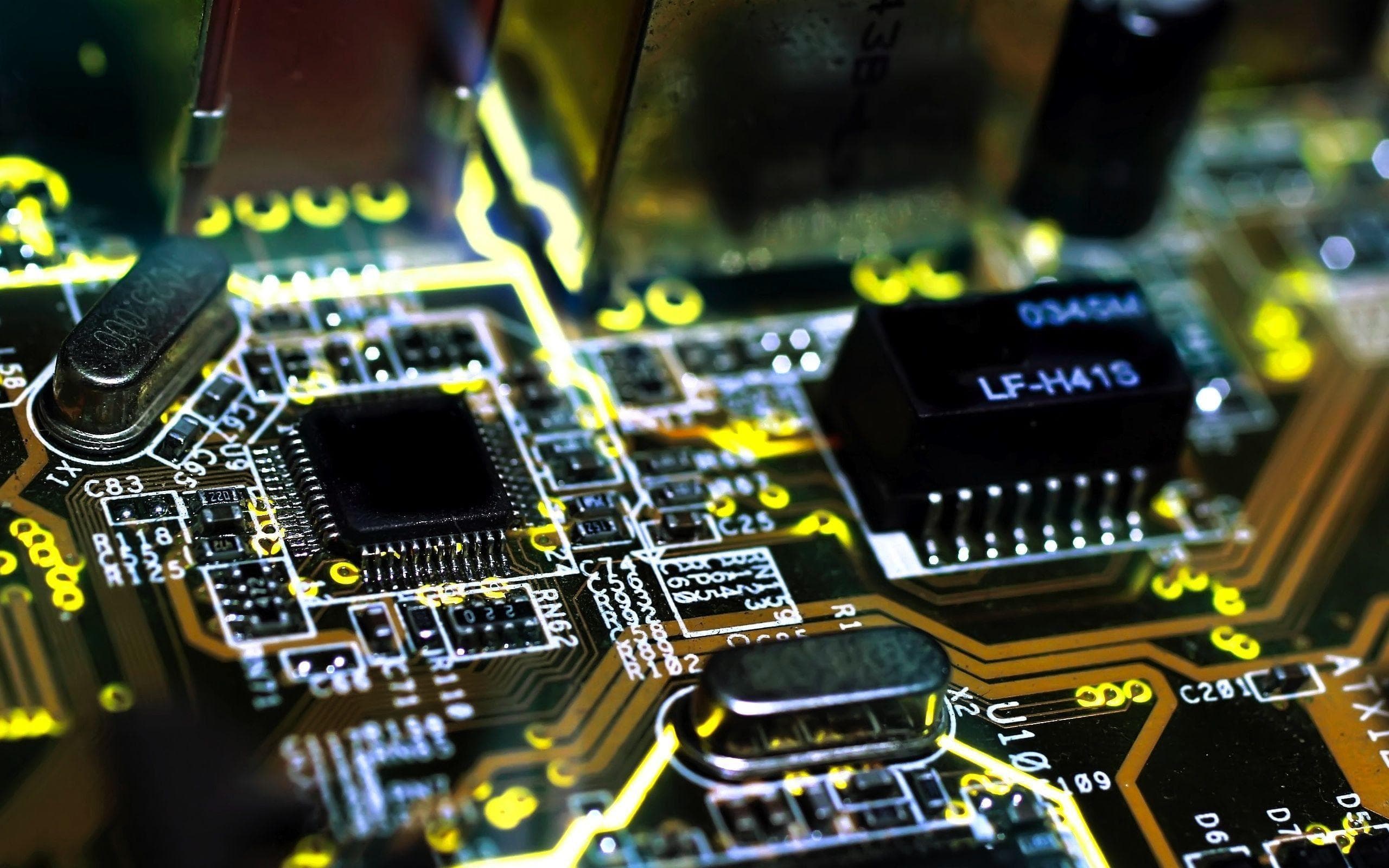
An aircon PCB (Printed Circuit Board) refers to the control or circuit board in an air conditioning unit that controls various functions of..
Aircon Thermistor Guide
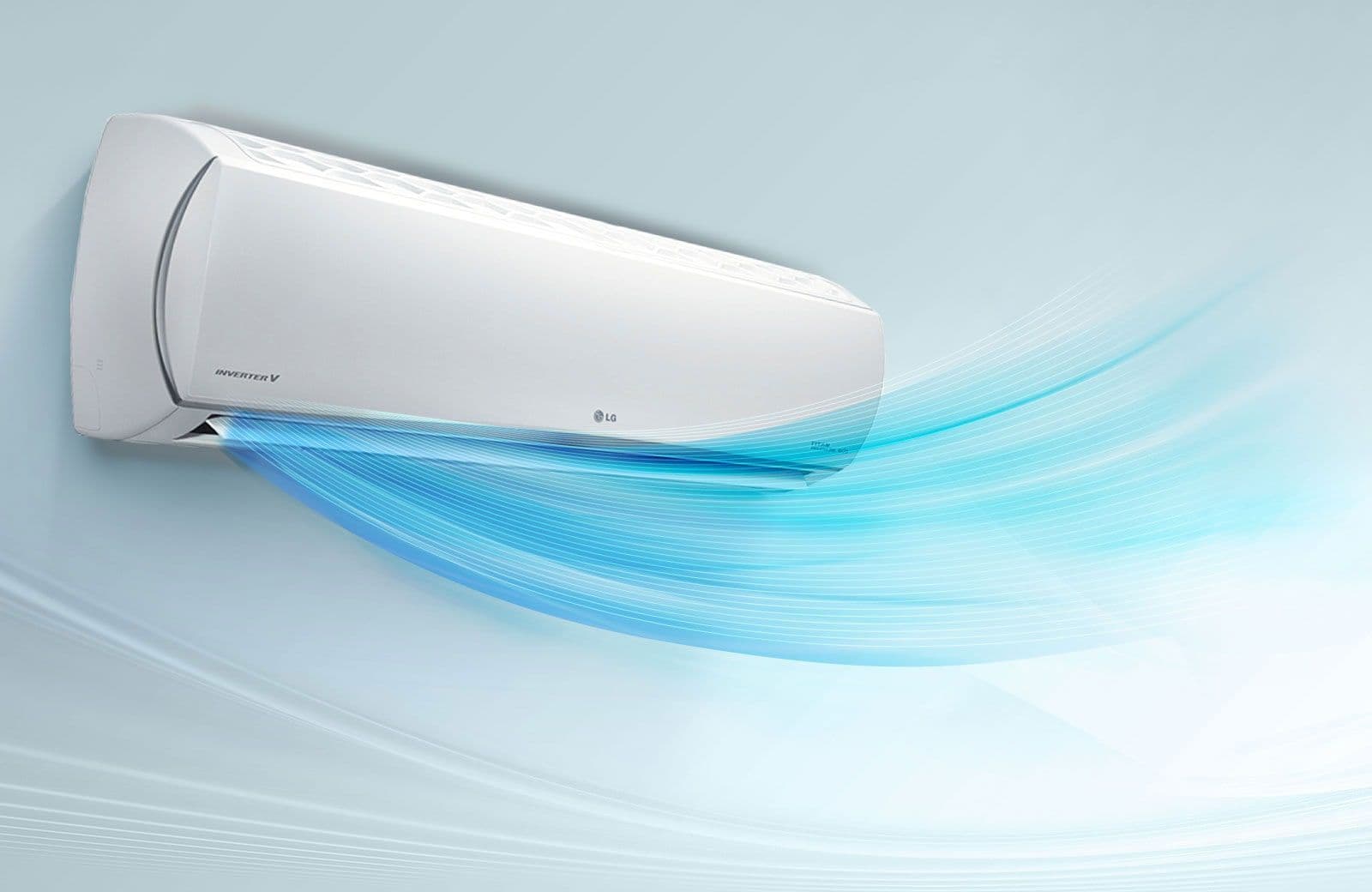
Aircon Thermistor replacement can cost anywhere between $120 to $250 based on several factors, such as the aircon brand/model, complexity of..
Aircon Condenser Cleaning & Repair
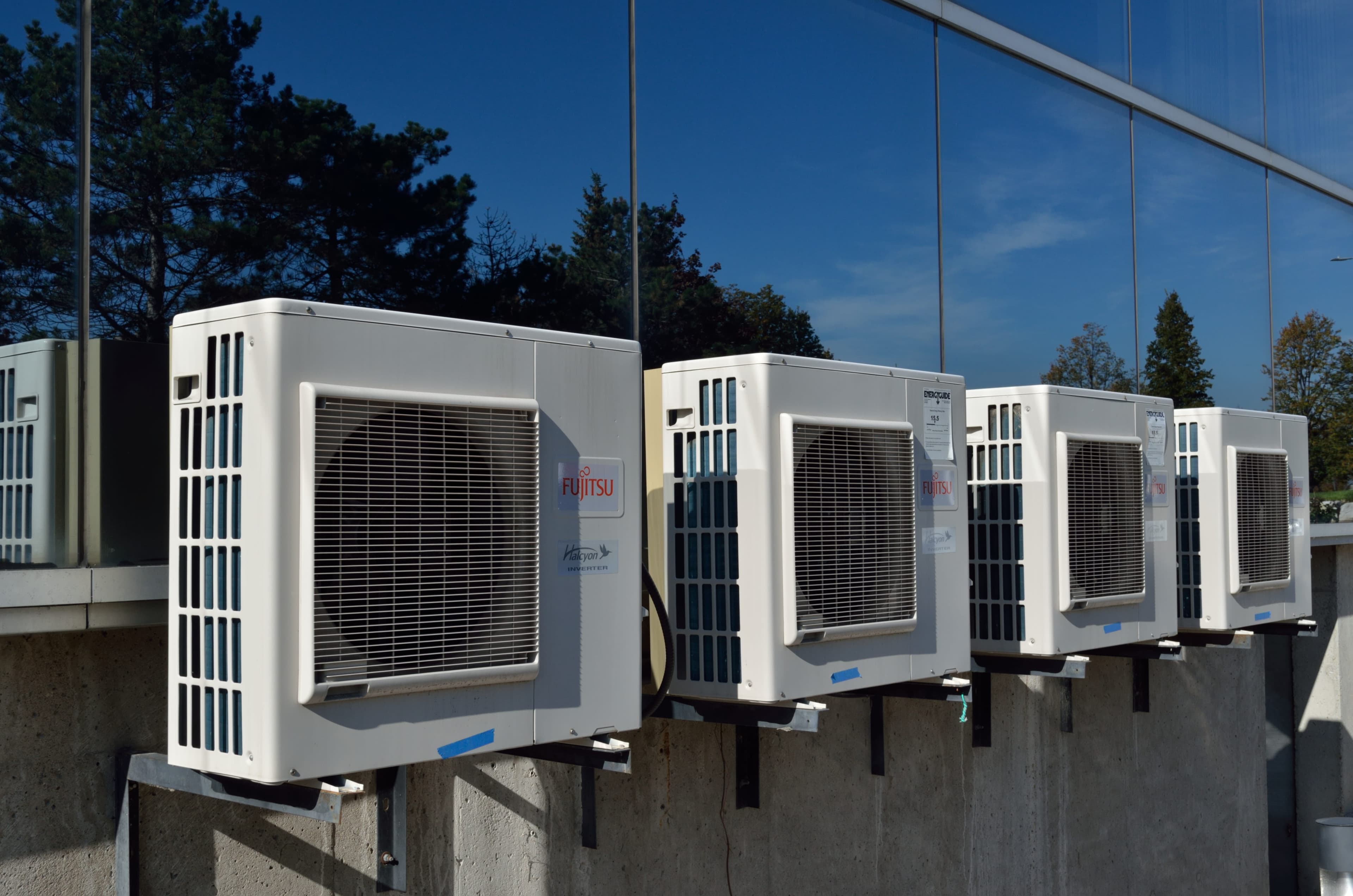
An aircon condenser (also known as an air conditioning condenser) is a vital component of an air conditioning system that helps to remove heat..
Complete Guide To Aircon Installation
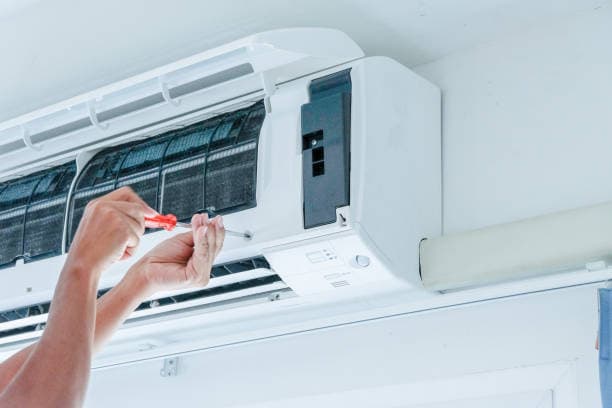
Moving in to a new house or just want to replace your Aircon? Everything you need to know about a new Aircon installation. Topic Highlights..
Fix Aircon Gas Leak | Leakage Indications & Repair Cost

Aircon refrigerant gas leakage is a common issue faced by air conditioning systems in Singapore. Learn more about the cause, indications..
Chemical Wash vs Chemical Overhaul
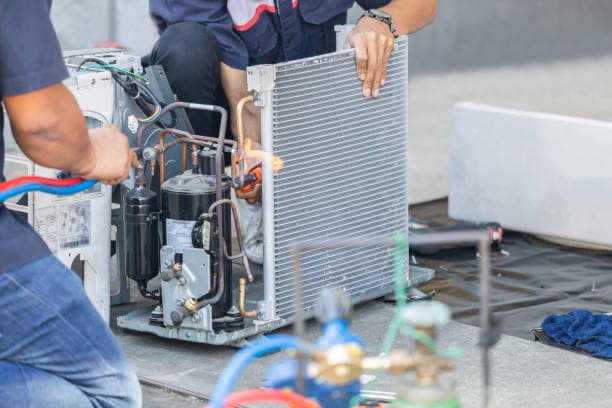
Often people get confused with these terms and what do they mean in terms of cleaning and expenses. The general purpose of a chemical wash..
Top 5 Reasons Why Your Air Conditioner Is Not Cooling
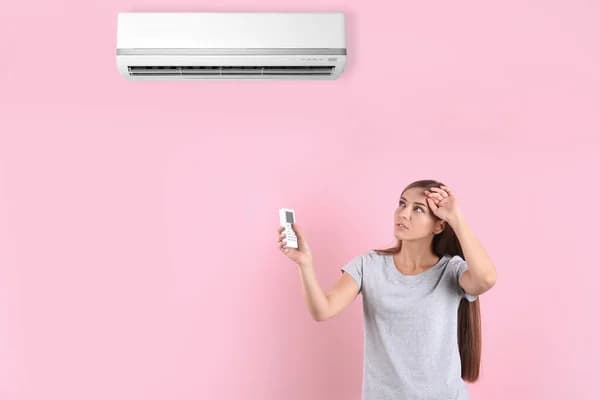
When your aircon is turned on but the air is not cold, it could mean many things like, the machine has run out of refrigerant gas..
Top 5 Reasons Why Your Air Conditioner Is Overheating
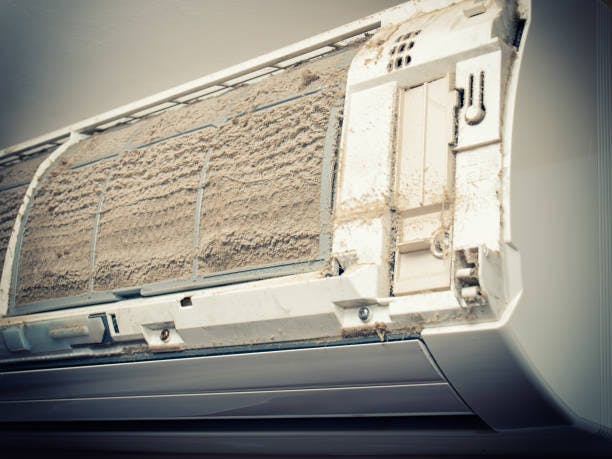
When your air con is working for long hours, it may overheat, which is the most common reason. Bad Or Dirty Air Filters- Air filter..
